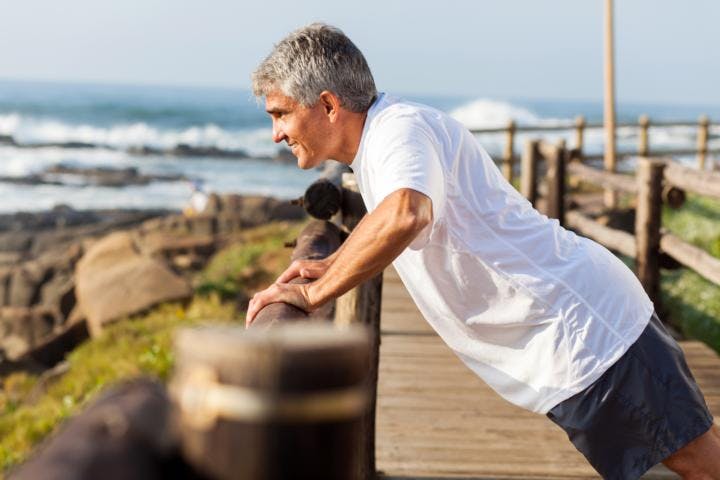Taking many drugs at one go may be necessary, especially for less healthy older adults, but we must be aware of the potential dangers.
There are times when it is necessary for a patient to take multiple drugs daily as they suffer from a few chronic medical conditions, but their regime should be regularly reviewed to ensure all the drugs they are on are still necessary. — Pexels
The Malaysian population is rapidly ageing, with over 11% currently aged 60 and above.
This figure is projected to rise to 17.3% by 2040.
The demographic shift has led to increasing healthcare demands, particularly in managing chronic diseases such as diabetes, hypertension (high blood pressure) and heart disease.
These conditions require long-term medicine use.
Alarmingly, studies indicate that nearly half of older Malaysians experience polypharmacy.
Many are also prescribed potentially inappropriate medications or fail to adhere to their treatment regimens.
This issue calls for coordinated care, increased awareness and targeted interventions.
Understanding polypharmacy
Polypharmacy is generally defined as the use of five or more medicines at the same time.
However, the number of medicines alone does not determine the impact.
The necessity and appropriateness of these medicines are equally important.
Polypharmacy can be both beneficial and harmful.
Appropriate polypharmacy occurs when multiple medicines are clinically necessary, carefully monitored and effectively managed.
For example, a person with high blood pressure, diabetes and heart disease may require several medicines to maintain stable health.
Problematic polypharmacy occurs when medicines are prescribed to treat the side effects of other medicines (a situation known as a prescribing cascade), or when the medicines themselves are potentially harmful.
Polypharmacy is common among older adults for several reasons.
Understanding these contributing factors is essential in order to design effective strategies to minimise medicines-related harm and improve overall patient care.
Some of the factors that can be attributed to the high frequency of polypharmacy among older adults are:
- The presence of multiple chronic medical conditions, for which the long-term use of medicines is necessary,
- Prescription of medicines on multiple different occasions by different healthcare practitioners, which increases the risk of duplication or drug interaction.
- Prescribing cascades, where medicines are prescribed to treat the side effects caused by other medicines.
- The absence of regular medicine reviews, which may allow unnecessary or outdated prescriptions to continue without reassessment.
- Poor communication between patients and healthcare providers, which can result in confusion or misuse of medicines.
- Widespread and accessible pharmaceutical promotions, which encourage patients to use traditional or over-the-counter medicines alongside prescribed medicines without medical advice.
Potential dangers
Polypharmacy carries genuine and significant risks, especially for older adults.
Due to slower metabolisms and potentially impaired kidney function, the elderly are more vulnerable to the negative effects of multiple medicines.
Some of the most concerning consequences include emergency hospitalisations due to medicine-related complications, drug interactions that lead to undesirable side effects or reduced effectiveness, and adverse side effects such as dizziness, confusion or gastrointestinal issues.
In addition, when medicines impair alertness or physical coordination, they may contribute to falls, fractures and cognitive decline.
Several studies conducted in Malaysia also show that the majority of older adults do not take their medicines as prescribed.
Polypharmacy has a direct impact on medication adherence, which refers to how well patients follow their prescribed treatment plans.
As the number of prescribed medicines increases, the elderly often struggle with complex dosing schedules, leading to missed or incorrect doses.
This not only compromises treatment outcomes, but also increases the risk of hospitalisations and complications.
To address these, it is essential to provide patient education, simplify medicine regimens, and offer support through technology and caregiver involvement.
Reducing the risks
Healthcare systems around the world are adopting more proactive strategies to ensure the safe and effective use of medicines, especially in light of growing concerns about polypharmacy.
One important strategy is regular medicine reviews.
Patients are encouraged to inform their doctors and pharmacists about all the medicines they are taking, including prescriptions, over-the-counter products and supplements.
This open communication allows more regular medicine reviews, which helps healthcare providers identify medicines that may no longer be necessary or could be potentially harmful.
Another key practice is deprescribing, which involves gradually reducing or stopping medicines that are no longer beneficial.
Medicine reconciliation is also essential.
This process ensures that any changes to a patient’s medicine list, such as during hospital admission, discharge or transfer to a nursing home, are accurate and appropriate.
Technology also plays a helpful role.
Electronic health records can alert healthcare providers to potential interactions or duplicate medicines.
Most importantly, a patient-centred approach is needed.
When patients are involved in decisions about their treatment, it builds trust, improves adherence to medicines and leads to better health outcomes.
The most effective strategies to manage polypharmacy involve active participation from both patients and their caregivers.
Several steps are encouraged to support safe medication use:
- Maintain an updated medicines list, including over-the-counter products, supplements and herbal remedies.
Bring this list to every medical appointment.
- Ask your doctor or pharmacist about the purpose, benefits and possible side effects of each medicine.
- Inform your doctor or pharmacist when you experience side effects, especially if they are suspected to be caused by a medicine.
- Get help from pharmacists for medicine reviews, especially after hospital stays or when there is a change in the medicine regimen.
- Use adherence devices or tools to help take medicines correctly, such as pill boxes, mobile apps or mobile alarms.
The role of pharmacists
As the number of elderly individuals taking multiple medications daily continues to rise, the role of pharmacists has become increasingly vital.
While doctors are responsible for diagnosing conditions and prescribing treatments, pharmacists ensure that medications are used safely, correctly and effectively.
With specialised knowledge in pharmacology and drug interactions, pharmacists are often able to detect issues that may be overlooked by others.
These include overlapping therapies, potentially harmful drug combinations, and unnecessary or duplicate prescriptions.
Community pharmacists, in particular, are in a unique position to support patients directly.
As the most accessible healthcare professionals, they can offer personalised counselling, conduct routine medication reviews and help patients understand the purpose and proper use of each medicine.
They can also identify early signs of adverse effects or non-adherence, and refer patients for further medical attention when necessary.
Addressing polypharmacy requires a coordinated approach that centres on the patient.
As the population grows older, providing safe, effective and individualised treatment is crucial.
Balancing illness management with quality of life is key to delivering better and safer care to older adults.
For any inquiries regarding medicines, please call the National Pharmacy Call Centre (NPCC) at the toll-free number 1-800-88-6722 during weekdays from 8am to 5pm, except on public holidays.
By PAYAL CHOUDHURY
Payal Choudhury is a pharmacist at Hospital Tengku Ampuan Najihah in Kuala Pilah, Negri Sembilan. This article is courtesy of the Health Ministry’s Pharmacy Practice and Development Division.
For more information, email starhealth@thestar.com.my.
The information provided is for educational and communication purposes only, and should not be considered as medical advice.
The Star does not give any warranty on accuracy, completeness, functionality, usefulness or other assurances as to the content appearing in this article. The
Star disclaims all responsibility for any losses, damage to property or personal injury suffered directly or indirectly from reliance on such information.
Related stories:
Hepatitis: Infections that drive liver disease
Drugs are intended to cure, instead they're becoming water contaminants
Fighting lupus from within with the right drugs
Influencers and celebrities, beware of promoting health products!
HIV patients must take antiretrovirals but there's a downside to these drugs
Juggling Multiple Meds: Doctors and the Ninth Prescription
Several years ago, when prescribed a single medication to be taken daily for several months, I found it very difficult to remember to take it every day. I knew it was important and I knew why I was taking it, but even then I forgot. That experience got me thinking about the many people who are asked to take six, seven, ten drugs a day…forever. I have no idea how they remember to take all of these drugs correctly, and the fact is, most people don’t. This was made clear to me as early as my residency, when it was not uncommon for people to bring in garbage bags full of medicines. When asked how they determined which ones to take and when, these patients often seemed to go by the pill color of the day rather than any set schedule or plan.
In fact, the data on this issue—known as medical compliance—reveal an abysmal record of patients’ taking medications “as prescribed.” Reportedly less than one third of diabetic patients take metformin correctly. And only half the patients with high blood pressure take even 80% of their medications as prescribed. The end result is a multi-billion-dollar expense with unpredictable and often dangerous outcomes. How does this happen?
Unfortunately, when it comes to prescriptions, providers are required to be compulsive. We are trained not only to address every problem with a solution, but also to do so on an individual basis. If you have asthma, there's a treatment for that. If it’s heart disease, here’s another pill. Diabetes? Take three more. The list grows quickly, adding expense and, more alarmingly, often resulting in untoward drug-drug interactions. It’s gotten so bad you’d be justified in thinking certain providers delusional for even believing the patient could take the list of medications “as prescribed.” Yet, when you talk to physicians about this issue, many simply shrug their shoulders. They’ll tell you they have little choice. The current medical legal climate requires a response to each identified problem.
One solution to this quagmire is personalized medicine, a topic I’ve discussed in prior posts. I should note that personalized medicine means different things to different people, but for many, America's love affair with technology often translates personalized medicine into genomic medicine. Eric Topol wrote extensively about this in his book Creative Destruction of Medicine, explaining how, through sequencing the genome, doctors will be able to predict how each individual will respond to a particular drug. Equipped with such powerful tools, it’s not hard to imagine a future pharmaceutical industry that could customize medications, rather than simply produce mass quantities that work "well" for the average person.
Until that particular biotech future arrives, I think there is a far simpler and immediate opportunity open to personalized medicine: by identifying a patient's ability to participate in her own care and then matching the medication regimen not only to her needs and preferences, but to subjective criteria such as mental clarity, alertness, daily routines, family support, etc. Two people with exactly the same list of problems may have very different abilities and willingness to take a complex regimen of medications. A 50-year-old executive may have the same problem list as an 80-year-old nursing home patient, but will clearly have different organizational skills, financial resources as well as an understanding of why the regimen matters. For physicians to write prescriptions they know deep down their patients cannot take borders on the absurd and certainly does not constitute good care.
Although I'd like to think physicians would read this and suddenly change the way they write prescriptions, I am not that naïve. Without a significant change in how we're trained as well as appropriate protections from medical legal risk, it's unlikely doctors will suddenly change the way they practice. However, you as the patient have an opportunity to ask the questions. Are all of these medicines necessary? And if I only take a portion of the drugs, what is the overall increased risk to my health? If you find yourself simply unable to follow the regimen, have an honest conversation about alternatives. Remind your doctor that you are not a “problem list” but an individual with specific medical requirements and concerns.
Ultimately, treating problem lists instead of people may be “right" but it's not reasonable.















